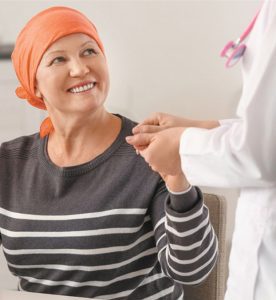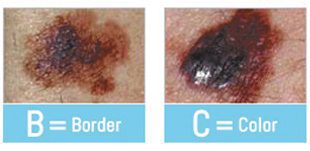By Dr. Arie Dosoretz


According to the American Cancer Society, one in four cancer patients experiences clinical depression. The National Cancer Institute defines clinical depression as having one or more of the following symptoms, which persist for more than two weeks.
• Persisting feelings of sadness or emptiness
• Having a sense of guilt or feeling unworthy
• Feelings of helplessness or hopelessness
• Moodiness or a short-temper
• Insomnia or oversleeping
• Feeling guilty or worthless
• Difficulty concentrating
• Feeling emotionally numb
• Loss of pleasure and interest in activities
• Withdrawing or isolating from friends and family
• Changes in weight, not due to illness or treatment
• Feeling nervous, tearful or shaky
• Thoughts about self-harm or suicide
Understanding the Connection Between Mental Health and Cancer
If unaddressed, these mental health symptoms can develop into psychosocial problems that affect one’s body image, and relationships with others. Naturally, many patients feel a loss of control and increased vulnerability. The common uncertainty about one’s future is often accompanied by anxiety, fatigue and general emotional distress. Oncologists must always provide mental health support as soon as possible to minimize emotional distress and its downstream effects.
At the time of diagnosis, a patient may experience fear, numbness, sadness or anger. During treatment, complications such as hair loss or nerve pain can take a heavy toll on one’s mental health. Patients may experience psychological distress from a lengthy course associated with chemotherapy, radiation and surgery. Financial concerns around the cost of treatment are frequent as well. Anxiety commonly develops from anticipating medical appointments or results. Physical side effects related to a particular course of treatment may limit freedom and keep patients from doing what they love most.
The time after treatment also poses unique challenges. Patients must often adapt to a “new normal” as their bodies recover and slowly heal from treatment. The transition from being constantly surrounded by a caring medical team to less frequent visits can also be difficult and follow-up visits often revolve around important test results that generate fear and anxiety as well.
The global pandemic has introduced further challenges to patients and their caregivers in recent times. Patients have faced heightened stress amidst a constantly changing health care landscape while managing the challenges of living with a weakened immune system.
Choosing the Right Medical Partner
Experiencing these symptoms should be viewed as a natural part of the cancer journey. While still at times unfortunately overlooked, the connection between a patient’s mental and physical health is increasingly considered a core component of high-quality patient care.
Partnering with a medical provider who understands these struggles is the best approach to ensure one receives the support that every patient needs and deserves. At Advocate Radiation Oncology, we believe it is critical that conversations about mental health should be deeply ingrained in the diagnosis and treatment process. We frequently partner with the mental health professionals in our community as well as part of our multi-disciplinary approach.
As your partner in the fight against cancer, our compassionate team of world-class experts knows how critical mental health care is for every cancer patient we diagnose and treat. We are here to care for the whole person as each patient gets the personalized support they need.
ADVOCATE Radiation Oncology
Cape Coral
909 Del Prado Blvd. S
Cape Coral, FL 33990
(239) 217-8070
Bonita Springs
25243 Elementary Way
Bonita Springs, FL 34135
(239) 317-2772
Fort Myers
15681 New Hampshire Ct.
Fort Myers, FL 33908
(239) 437-1977
Port Charlotte
3080 Harbor Blvd.
Port Charlotte, FL 33952
(941) 883-2199
Naples
1775 Davis Blvd.
Naples, FL 34102
(239) 372-2838
 Southwest Florida's Health and Wellness Magazine Health and Wellness Articles
Southwest Florida's Health and Wellness Magazine Health and Wellness Articles

